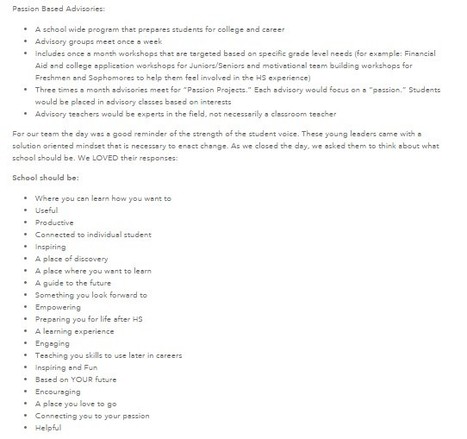John Hagel is a business writer, so we shouldn't expect his analysis of learning to be deep, and it isn't. But he does capture an important concept: that as you drill down through the levels of learning effectiveness, beyond skills, knowlege and capabilities, you get non-cognitive factors such as passion. "I've written about here, here and here," he writes. "This form of passion has three components – (1) a long-term commitment to achieving an increasing impact in a particular domain, (2) a questing disposition that seeks out and is excited by new challenges and (3) a connecting disposition that actively seeks to connect with others who might be helpful in addressing these new challenges."
Via Miloš Bajčetić



 Your new post is loading...
Your new post is loading...















